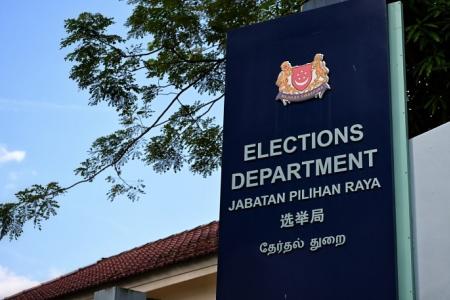Bill to combat digitally manipulated content tabled
A new Bill will put in place measures to counter digitally manipulated content during elections including misinformation generated using artificial intelligence (AI), which are commonly known as deepfakes.
The proposed safeguards under the Elections (Integrity of Online Advertising) (Amendment) Bill will apply to all online content that realistically depicts a candidate saying or doing something that he or she did not.
This includes content made using non-AI techniques like Photoshop, dubbing and splicing.
If the Bill is passed, candidates will be able to ask the Returning Officer (RO) to review content that has misrepresented them. A false declaration of such misrepresentation is illegal and could result in a fine or loss of a seat.
Others can also make requests to review such content, which is set to be made illegal once the Writ of Election is issued and until the close of polling.
The move comes ahead of a general election that must be held by November 2025.
The RO can issue corrective directions to those who publish prohibited online election advertising content under the proposed new law. Social media services that fail to comply may be fined up to $1 million upon conviction, while all others may be fined up to $1,000, jailed for up to a year, or both.
Corrective actions include taking down the offending content, or disabling access by Singapore users to such content during the election period.
Minister of State for Digital Development and Information Rahayu Mahzam tabled the Bill in Parliament on Sept 9. It will be debated at the next available sitting and if passed, will amend the Parliamentary Elections Act and the Presidential Elections Act to introduce the new safeguards.
To be protected under it, prospective candidates will first have to pay their election deposits and consent to their names being published on a list that will be put up on the Elections Department’s website, some time before Nomination Day.
If they choose to do so, it will be the first time that the identities of prospective candidates are made public before Nomination Day.
The measures will also cover successfully nominated candidates from the end of Nomination Day to Polling Day.
The Ministry of Digital Development and Information (MDDI) said in a press release that while the Government can already deal with individual online falsehoods against the public interest through the Protection from Online Falsehoods and Manipulation Act (Pofma), targeted levers are needed to act on deepfakes that misrepresent candidates during elections.
“Misinformation created by AI-generated content and deepfakes are a salient threat to our electoral integrity,” said a MDDI spokesperson.
“We see this new Bill not as a replacement for Pofma, but rather as a means to augment and sharpen our regulations under the online election advertising regime, to shore up the integrity of our electoral process.”
The spokesperson added that for Pofma, the Government will respond when it knows what the facts are, for example, when someone makes a falsehood about the reserves or housing prices.
“However, in the case of deepfakes featuring political candidates, it is much more difficult for the Government to establish what an individual said or did not say, did or did not do. Therefore, we do need the individual to come forward and say that this is a misrepresentation.
“While we can use a set of technological tools to assess whether the content is AI-generated or manipulated, these tools give us a certain confidence level, but it is not 100 per cent. So there is quite a lot of weight given to what an individual claims is the truth, and this is where it differs from Pofma.”
Beyond elections, a new code of practice will be introduced to tackle deepfakes and other forms of manipulated content.
The Infocomm Media Development Authority (IMDA) will introduce the code requiring social media services to put in place measures to address digitally manipulated content.
This will ensure that they do more to gatekeep, safeguard and moderate content on their platforms. IMDA will engage social media services in the coming months to work out the details of the code.
Get The New Paper on your phone with the free TNP app. Download from the Apple App Store or Google Play Store now


